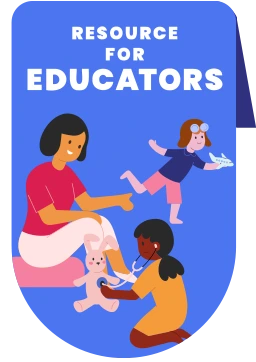Peer sharing and learning is one of the best ways to improve teaching and learning practices. Through sharing of the real examples in classrooms and best practices supporting children’s diverse learning needs, senior and lead educators in ECDA’s Early Childhood Learning Communities (ECLC) programme, known as Pedagogists And Specialists in Teaching and Learning (PASTELs), support each other to grow professionally through their regular meet-up and discussion.
The current Learning Communities focuses on six domain areas: Early Years Competencies, Outdoor Learning, Language and Literacy, Social and Emotional Development, and the newly introduced communities for Inclusive Practice and Mother Tongue Language (CL & ML).
Check out the key insights and learning points by PASTELs, including their professional dialogues with local and overseas experts for each domain area from the infographics below.
EARLY YEARS COMPETENCIES
When children have opportunities to revisit, explore and consolidate their ideas repeatedly, they strengthen neural connections. During schematic play, educators should observe before intervening, allowing children to experiment and explore their world independently.
Learn more tips from the summary of the discussion PASTELs had with the domain expert, Dr Katherine Bussey, an infant and toddler specialist who developed expertise in the Pikler® approach and Magda Gerber's Educaring Approach.

OUTDOOR LEARNING
Ethics provide the moral framework guiding educators’ actions. The revised Code of Ethics (CoE) outlines professional responsibilities that every early childhood professional must uphold. In outdoor learning, educators should provide children with time, space and choices, acknowledging that the process of trying is as valuable as the outcome.
Learn more tips from the summary of the discussion PASTELs had with the domain expert, Ms May Tan, Associate Faculty, Singapore University of Social Science (SUSS) and Outdoor Education Consultant, Grace Orchard School.

LANGUAGE & LITERACY
Core skills in children’s language and literacy development include phonics, phonological awareness, print awareness and morphological awareness. Educators should encourage children’s confidence in spelling through self-directed learning experiences.
Learn more tips from the summary of the discussion PASTELs had with the domain expert, Dr Beth Ann O’Brien, head of Early and Middle Childhood Research, Centre for Research in Child Development (CRCD), National Institute of Education (NIE).
.png?sfvrsn=a82c35e2_1)
SOCIAL & EMOTIONAL DEVELOPMENT
The EASEL approach provides evidence-based practices that promote healthy social and emotional development in young children. These practices are best woven into everyday preschool practices, as regular implementation leads to improved outcomes for children.
Learn more tips from the summary of the discussion PASTELs had with the domain expert, Dr Cheryl Seah, developmental psychologist with a focus in early intervention among young children, and part of the EASEL team, National University of Singapore.

INCLUSIVE PRACTICE
As inclusive leaders, we should encourage and model creativity by creating an open and safe space to share perspectives, opinions, and ideas, while keeping in mind that universal design for learning emphasises individualisation as the key point.
Learn more tips from the summary of the discussion PASTELs had with the domain expert, Dr Denise Lai, Director and Head of Programmes, Centre for Applied Practice in Education (CAPE).
.png?sfvrsn=e5af6f94_1)
MOTHER TONGUE LANGUAGE (CHINESE LANGUAGE)
Project-based teaching focuses on active learning and social interaction. Educators create meaningful learning environments where children naturally develop language abilities through dialogue and sharing. This approach emphasises the natural construction of language skills through purposeful interactions and meaningful projects.
方案教学强调幼儿通过主动参与和社交互动来建构语言能力,而不是被动接受语言知识。在真实的探究情境中,教师基于幼儿已有的语言经验,创设丰富的语言环境,让幼儿通过对话、讨论和分享等活动自然地发展语言能力。这个过程重视幼儿的主动建构和学习历程,而非仅关注最终的语言表现成果。
Learn more tips from the summary of the discussion PASTELs had with the domain expert, Ms Liang-Yi Cheng, founder and director of KinderLand I Kindergarten, Taiwan.

MOTHER TONGUE LANGUAGE (MALAY LANGUAGE)
Educators should strive to make arts education fun and engaging. Opportunities for educators to meaningfully incorporate Malay music and dance include integration during cultural learning experiences and cross-subject collaboration.
Sebagai guru, kita harus cuba membawa keseronokan supaya pengajaran seni tidak akan menjadi suatu beban. Peluang-peluang yang guru boleh mengambil untuk menerapkan muzik dan tarian melayu secara bermakna seperti menerapkan ketika pengajaran tentang budaya atau kolaborasi dengan subjek-subjek lain.
Learn more tips from the summary of the discussion PASTELs had with the domain expert, Dr Roszalina, lecturer, National Institute of Education (NIE).
.png?sfvrsn=f3121048_1)
Check out the ECLC Community of Practice Catalogue for more information.







